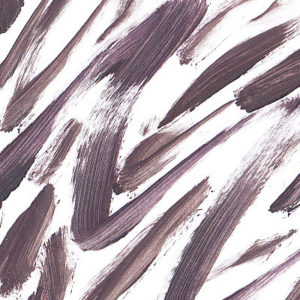 To accompany the bringing of my new website online, I had wondered what I should write about here. I confess that I am not a great thinker, rather being someone, who delights in seeing the form of an image in my mind emerge onto a physical surface. I thought of a number of topics on which I could write, but it took little time for me to dismiss each of them in turn as being perhaps vacuous, and indeed rather pointless. Eventually, my thoughts turned to brushstrokes.
To accompany the bringing of my new website online, I had wondered what I should write about here. I confess that I am not a great thinker, rather being someone, who delights in seeing the form of an image in my mind emerge onto a physical surface. I thought of a number of topics on which I could write, but it took little time for me to dismiss each of them in turn as being perhaps vacuous, and indeed rather pointless. Eventually, my thoughts turned to brushstrokes.
I have a penchant for using prominent, sometimes even crude, brush strokes in my work; and I think these often express my feeling as to the dynamic of the work itself. Then, someone commented to me that these strokes surely said something about me, but when I asked what, no really coherent answer was forthcoming.
It was then that I happened to see a quote, “Why should a flick of the wrist, or the happenstance of rapid painting, tell us anything about the personality of the painter?”
That, in turn, led me to a book by James D. Herbert, Professor of Art History at the University of California, Irvine, Brushstroke and Emergence: Courbet, Impressionism, Picasso, about which it was said that it may very well change the way you view and address a work of art.
It was fascinating reading. The author posed the question, “Does the artist possess ‘his or her’ work, or do the brushstrokes in the work well up to take possession of the artist?” I thought to myself that this was rather akin to another question I had heard posed some time ago, “Does the grammar and syntax of a language stem from the mentality of the race, the original speakers of that language, or does the structure of the language inform the development of the grammar and syntax of the language?”. In both cases it is, seemingly, a chicken and egg question.
In the case of the brush stroke question, it led James Herbert to pose the consequent question, “Are we ever really in control of our creative work?” He provided himself with a ‘yes and no’ answer.
However, I am sure in thing is certain. The pre-impressionist ideal of painting tight, that is eschewing brush strokes, and seeking a finished work as (for want of a better word) photo realistic as possible, is finished. It is accepted that the strokes contribute their own voice to a work.
I hesitate to say what my strokes say of me. Do I control my strokes, or do my strokes control the reality of the finished work?
